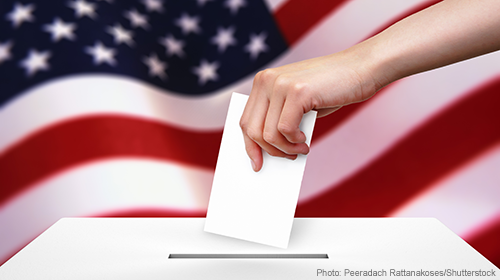
This piece originally appeared at The Huffington Post.
It's been 50 years since Freedom Summer -- when civil rights activists from around the country converged on Mississippi for a massive voter registration campaign. They didn't end discriminatory barriers to the ballot box in one fell swoop. But their incredible courage and dedication in the face of immense danger and seemingly insurmountable odds marked a moment when the tide began to shift, when the Fifteenth Amendment's promise that all Americans have the right to vote free from racial discrimination -- which had gone unfulfilled for nearly a century -- finally began to become a reality.
Today we find ourselves in a context that is obviously quite different. Our nation has changed dramatically, and for the better. But the present bears many parallels to that historical moment 50 years ago, as newer, subtler efforts at voter suppression have run rampant.
After 2008, when the most diverse electorate up to that point in our nation's history elected our first African-American president, dozens of states enacted suppressive measures that make it harder or even impossible for many people -- especially poor voters, young voters, and voters of color -- to register and to cast a ballot. This attack on our democracy reached a crescendo last year, when the Supreme Court struck down a key provision of the Voting Rights Act, unleashing yet another wave of pernicious voter suppression laws. Once again, the nation's promise that all Americans be able to vote free from undue burdens has gone unfulfilled.
But the spring of 2014 -- like the summer of 1964 -- has brought us glimmers of hope. Despite the surge in voter suppression, the ACLU and our allies have won a series of significant victories in courtrooms and legislative chambers around the country:
The first blow was on January 17, when a Pennsylvania judge, after hearing evidence that hundreds of thousands of Pennsylvania voters lack qualifying identification, permanently blocked Pennsylvania's voter ID law. On May 8, Gov. Tom Corbett announced that Pennsylvania will not appeal the ruling, effectively killing voter ID in the commonwealth.
In March, we won a major legislative reform in a deeply conservative state when Utah adopted legislation to create a pilot program for same-day registration (SDR), which permits voters to register and vote on the same day. On average, voter turnout is 10 percentage points higher in states with SDR than non-SDR states. Counties representing over 90 percent of the state's population will be participating, making this a statewide victory. Similar legislation is set to be enacted in Delaware and Hawaii any day.
On March 24, we settled a legal dispute with California, which agreed to complywith the National Voter Registration Act by offering voter enrollment services to all citizens participating in health benefits exchange. The state will mail voter registration cards to the 3.8 million Californians who used the exchange.
On April 29, a federal judge, after hearing evidence that 300,000 Wisconsin voters lack government-issued ID, struck down Wisconsin's voter ID law on the grounds that it violates the Fourteenth Amendment to the Constitution and Section 2 of the Voting Rights Act.
On May 1, we filed a lawsuit in Ohio challenging that state's cuts to early voting to protect the rights of over 100,000 Ohioans who voted during the now-eliminated early voting period in recent elections.
On May 2, an Arkansas judge ruled that Arkansas's voter ID law violates the state constitution. This law would have disenfranchised the 10 percent of eligible Arkansas voters who do not have the appropriate ID. Our lead client is a woman named Freedom Kohls, who lost everything she had -- including her birth certificate -- in Hurricane Katrina.
It's been quite a spring -- we've won a string of victories and the winds are shifting in our favor. But the battle is far from over. In the coming months, courts will hear ongoing challenges to voter suppression in North Carolina, Ohio, Wisconsin, Arkansas, and other states. The obstacles we face are daunting, but they pale in comparison to those overcome half a century ago.
When all is said and done, we hope that the spring of 2014 will be remembered as a new tipping point in the fight for the franchise, as we honor the heroes of the Freedom Summer by standing up for our clients -- people like Freedom Kohls -- and for the freedom of all Americans to exercise the most basic right in our democracy.
Learn more about early voting and other civil liberty issues: Sign up for breaking news alerts, follow us on Twitter, and like us on Facebook.



